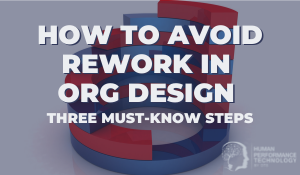Leveraging Power Here and Now
There has been an interesting power shift underway for the past 12 to 18 months that was sparked by the health pandemic. Where power once sat somewhat firmly with an employer or business, there has been a shift in power to the employee - the individual.
Power is an interesting concept in business relationships. In its simplest definition, power is the ability to act with the capability of accomplishing something.
Leveraging Power
The Six Bases of Power are worth understanding when attempting to leverage power. In summary, the Six Bases of Power are:
- Coercive – based on force or fear (real or perceived) to gain compliance
- Expert – based on the knowledge and skill of the individual
- Information – based on the individual’s access to valuable information
- Legitimate – based on the position held by the individual
- Referent – based on the connections and affiliations of the individual
- Reward – based on the individual’s ability to hand out rewards, both monetary and non-monetary.
With that in mind, it appears that employees have new-found power to leverage in their work relationships.
Employees and job candidates alike are making requests of their employers, and they are successful (broadly speaking) in their endeavours. For example, employees and candidates are able to design their work arrangements, make salary demands, and clearly request and receive what they need to maintain their mental health and wellbeing.
Why is This Happening?
In the midst of the pandemic, there have been (and still are) some unique circumstances that brought about this shift in power. Here are a few to note:
- Individuals have greater self-awareness after months in lockdown, and they are looking at their life and their personal time very differently now.
- A closed international border (in Australia and New Zealand) has meant there is not a consistent flow of new talent coming in from offshore.
- Business leaders (in many cases) have realised that their people do not have to be visible in an office to be effective.
- ‘The Great Resignation’, which references the largest number of resignations in the USA over the past 6 months, is starting to occur in the UK and Australia.
- There is understanding and an important focus on mental health, wellbeing, physical and psychological safety, as well as stress in the workplace.
- Employees want their companies to take a stance on social justice issues, particularly as many individuals embrace activism on political and social topics from climate change to women’s rights to racial inequality.
Who is the Boss Anyway?
With a shift in power comes a recognition that an individual contributor at the bottom of the organisational chart has a strong enough voice to make change and make demands. In a recent podcast from Adam Grant’s Work Life, he focused on how to use your voice to drive change above you, and how to manage all the voices rising up from below.
While the episode had more of a focus on social justice than monetary demands, the question was the same: “In organisations today, who is the boss?”
The position that we take is that there should be two-way transparency, authenticity and respect in the employer-to-employee relationship. The balance of power is not always even; however, with those key components, the relationship will feel fair.
By promoting a sense of fairness, employers may increase the likelihood of having a positively motivated workforce and positive economic outcomes.
Next Steps
This all leads to three opportunities:
- An opportunity to reset relationships. Consider taking your team through their onboarding again with a new focus on company culture, remote work practices, health and wellbeing, and other relevant changes.
- An opportunity to improve talent management practices. Consider introducing new initiatives around diversity, equity and inclusion. Consider clarity, transparency and consistency in job offers in response to changing demands.
- The opportunity to reform the company’s purpose. Consider updating company values and purpose to integrate current and relevant issues that demonstrate the business’ progressive approach.
Perhaps taking advantage of these three opportunities is where the real power lies!
References
Pilita Clark. ‘The Great Resignation’ wave swamping workplaces around the world. Australian Financial Review (AFR), 30 Jun 2021.
Adam Grant. Who’s the Boss. Work Life, 25 May 2021.
French, J. and Raven, B. (1959). The Bases of Social Power. In Studies in Social Power, D. Cartwright, Ed., pp. 150-167. Ann Arbor, MI: Institute for Social Research.
Raven, B. H. (1965). Social influence and power. In I.D. Steiner & M. Fishbein (Eds.),Current studies in social psychology (pp. 371–382). New York: Holt, Rinehart, Winston.

Temre Green, PhD
Head of Consulting Services, Australia & New Zealand. Temre has designed, planned and delivered business strategy and transformation programs that were driven by a range of factors, such as innovation, growth, compliance, regulations, restructures and economic downturns. As an Industrial-Organisational Psychologist, Temre has spent her career dedicated to organisational behaviour and the work environment. She is currently focused on the future of work and multiple areas of organisational development that support organisational growth and health.


.png?width=374&name=Smarter%20Thinking_%20The%20Socratic%20Method%20(9).png)
We Would Like to Hear From You (0 Comments)